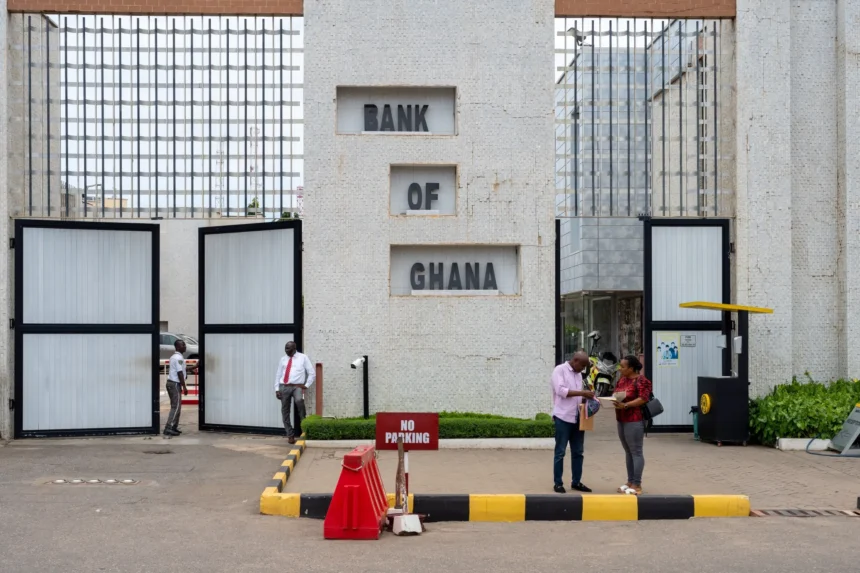Economist Dr. Raziel Obeng-Okoh contends the Bank of Ghana’s decision to maintain the Monetary Policy Rate at 28% is excessively cautious and misaligned with economic fundamentals.
The Ghana Institute of Management and Public Administration senior lecturer argued the central bank missed a critical opportunity to cut rates by at least 200 basis points, citing strong export earnings, remittance inflows, and reserves at 4.7 months of import cover. “I expected the rate to drop. Proceeds, production, prices, and volumes all increased. Why maintain such a tight stance?” he questioned at a briefing.
Bank of Ghana Governor Dr. Johnson Asiama defended the unanimous Monetary Policy Committee decision, noting the cedi’s rebound stems from tight monetary policy, fiscal consolidation, reserve accumulation, and improved market sentiment. “Inflation remains high relative to our medium-term target, requiring continued tightness to reinforce disinflation,” he stated at the policy announcement.
Obeng-Okoh countered that declining inflation since December and positive market expectations warrant policy alignment. “Monetary policy should reflect optimism,” he emphasized, highlighting a growing disconnect: Treasury bills yield 14-16% while the policy rate sits at 28%. “This mismatch signals poor coordination. A 200-point cut would support activity without jeopardizing stability.” Ghana’s inflation eased to 23.2% in January after peaking at 54.6% in December 2022, though still above the central bank’s 6-10% target.



